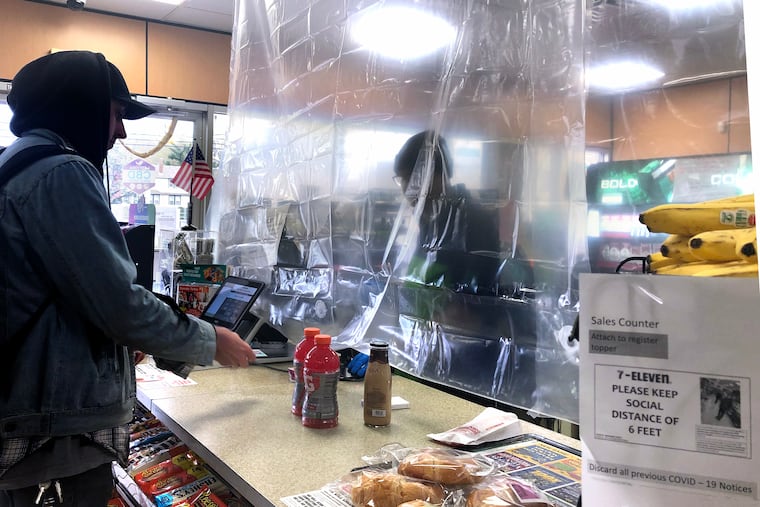The pandemic has made life more flexible. Businesses and institutions should keep it that way. | Opinion
The pandemic has shown that even seemingly ironclad deadlines — for taxes, airline tickets, school enrollment — can change when needed.

Last week, in a fit of pandemic-induced retail therapy, I bought a tunic online. The package arrived a few days later, and after painstakingly disinfecting it and everything within a three-foot radius, I tried it on. That’s when I discovered a gnarly smudge on the shirt. Would I have to return it? How? As my mind raced through possible scenarios — including making my own hazmat suit to brave public transit — I thought to check the store’s return policy.
Thankfully, it brought good news: Free mail-order returns. Extended time. Price adjustment refunds in case the item later went on sale. In other words, the return policy had turned into an (almost) anything-goes policy.
It’s commonplace to say that we’re living in a “new normal” (right after calling these “unprecedented times”), but that’s not exactly accurate. It’s truer to say that anything we call “normal” is exceedingly fragile. We’re learning this the hard way. Despite building a bustling restaurant scene over the last decade, Philly has seen even its successful establishments struggle to break even. Crowded commuter trains, overparked streets, and busy sidewalks vacated overnight. Retirement accounts and stock holdings saw a decade of earnings fall off of a cliff. Even big cities like ours scrambled to prepare vacant hospital beds.
It’s been a sobering reminder that “normal” is just whatever is happening “right now” — a story we tell ourselves that gives a feeling of control over the future.
» READ MORE: Online orders could save desperate retailers, but workers say they’re risking safety for purchases few need
But we can find power in the impermanence of normalcy. In fact, we must. Whatever future becomes of this time, it will be one we forge, based on priorities that are ours to choose. That’s why if we want to emerge from this crisis stronger, we need to embrace the parts of uncertainty that keep us nimble and humane. We need to embrace being flexible.
Take that return policy. It’s a small thing that amounts to big business: by some estimates, shoppers return up to 40% of online purchases. Long before COVID-19, retailers were already making refunds and exchanges easier, with some embracing free shipping and indefinite returns, to win over and maintain customers. Beyond reflecting how shoppers buy online, such moves boost consumer confidence by making it clear buyers can change their minds when circumstances change.
The pandemic has shown that even seemingly ironclad deadlines can become more like return policies. Airlines and hotels are moderating or waiving cancellation fees. Some states and municipalities are freezing foreclosures or rent. Tax days, elections, and even the Olympics have been postponed. In my own field, higher education, I’ve watched universities roll back course withdrawal deadlines, refund housing and parking fees, and shift grading policies. None of this was easy or cheap, but it made things more manageable when people needed it most.
Making it easier for people to get what they need, on their own terms, is a small step toward more equitable consumption.
Rather than hope for a return to how things were, businesses should think hard about how to make the most of flexibility. Bending the rules can mean the difference between keeping a customer and losing one — or between someone having a chance vs. being left behind. After all, the rules have never applied equally — rich and powerful people have always found ways to work systems, laws, and regulations to their advantage.
Such inequities will, of course, not be rectified with soft return policies. But making it easier for people to get what they need, on their own terms, is a small step toward more equitable consumption, at least.
Consider how cell phone and cable providers have eradicated late fees for customers unable to pay during the pandemic. This wonderful gesture underscores that late fees have always hurt the people who struggle the most. For example, the San Diego Library eliminated late fees in 2019 after noticing that many borrowers with fees lived in the city’s most disadvantaged neighborhoods. Afterward, not only did library usage go up, but long overdue materials were returned. Philadelphia’s library system took the cue and eliminated late fees in February.
» READ MORE: Coronavirus and massive demand have turned online grocery delivery into a big headache
There are plenty of ways higher ed can retain some of the current flexibilities, like keeping online learning an option after face-to-face classes resume. Online options can benefit students with mobility issues, mental health challenges, or complex work or family schedules. But universities have often made it complicated for students to switch to online programs, or not offered classes students need to finish their degrees.
We have proven in the pandemic that humans are adaptable by nature. The challenges have been real, scary, and overwhelming. But equally inspiring has our resolve — to educate our kids, restructure our days, and rethink how we work, shop, worship, and socialize. Rather than return to a rigid pre-pandemic world, we must open our minds and stretch our expectations. The future will need us to be flexible.
Devon Powers is an associate professor of advertising at Temple University and the author of “On Trend: The Business of Forecasting the Future.”